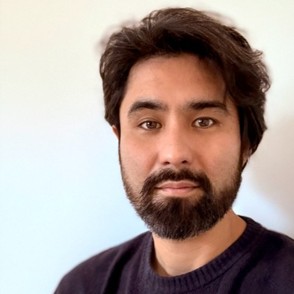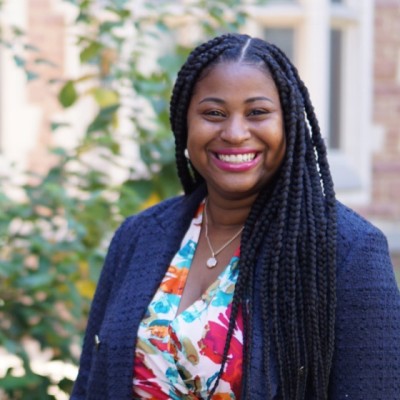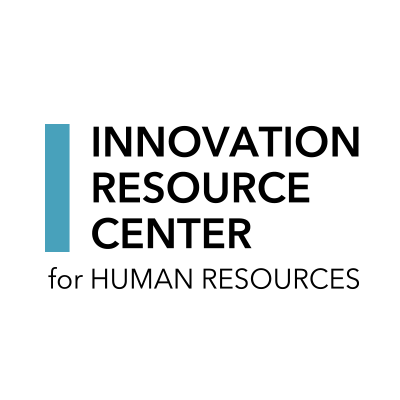Just Announced!
About this IRC® + IRC4HR® Project
For decades, healthcare education has relied primarily on traditional approaches—lectures, presentations, and text-based learning. While these methods effectively communicate information, they often fail to create the emotional and experiential connections needed to truly transform behavior in high-stakes, interpersonal healthcare settings.
At the same time, research has consistently demonstrated that experiential learning coupled with reflective practice leads to significantly higher learning retention rates and behavior change. When learners actively engage with content that triggers emotional responses and then have opportunities to practice new approaches in a safe environment, the learning becomes embedded in both cognitive and emotional memory systems.
This project explores how two innovative learning approaches—first-person perspective, “point-of-view” (POV) storytelling and AI-powered conversational tools—can transform workplace dynamics in healthcare settings. By examining the relationship between caregiving unit staff and the broader hospital workforce they serve, this project examines how these immersive learning modalities shape workplace interactions and staff wellbeing.
Analysis in this project focuses on three key dimensions:
- Comparative Effectiveness: Direct comparison of POV learning versus AI conversation tools across multiple metrics.
- Combinatory Impact: Assessment of how the two approaches work together versus independently
- Implementation Insights: Practical findings about deployment, engagement patterns, and adoption barriers
This project includes the following specific deliverables (expected to be delivered in early 2026):
Implementation Case Study: A documented case study of the implementation process, challenges, successes, and outcomesost at risk of negative impacts, we can inform better regulatory frameworks and organizational practices that promote equity and good work.
Comprehensive Research Report: A detailed analysis comparing the effectiveness of POV learning versus AI conversation tools in healthcare settings, including methodologies, findings, and recommendations
Empathic Learning Assessment Framework: A practical toolkit for healthcare organizations to measure and evaluate empathic learning effectiveness across different modalities
Researchers

Micah Wonjoon Kessel
After a young career as a singer at the Metropolitan Opera, Micah Wonjoon Kessel took his fascination with immersive experience into two decades of designing new approaches to learning by applying research on the science of emotions, empathy, and connection.
Micah gained his social science-informed approach as Design Lead at the Interdisciplinary Affective Science Lab, researching emotions and experience, and as a Scientist-Practitioner Partner with the Center for the Science of Moral Understanding.
Today, he applies this research as CEO of Empathable, whose technology uses social science, experiential learning theory, and AI to advance core skills for managers and teams at world-class organizations.
Under Micah’s direction, Empathable’s concept was a winner of the Harvard Culture Lab Innovation Fund Award. He has presented at the Asian American Foundation, the National Association of Diversity Officers in Higher Education, Harvard Medical School, the Society for Neuroscience and Creativity, and was a 2019 Byron fellow. Alongside Empathable, Micah has trained leaders to reimagine and better apply empathy at organizations such as Google, Meta, Deloitte, United Way, and Massachusetts General Hospital.

Sa-kiera T. J. Hudson, PhD
Sa-kiera Hudson is an Assistant Professor at University of California Berkeley Haas School of Business in the Management of Organizations (MORS) group.
In her first line of work, she focuses on emotion as a mechanism for maintaining hierarchy and inequality. Although research examining the importance of emotion in intergroup conflict has primarily centered on inducing empathy to promote prosocial intergroup behaviors, lacking empathy is insufficient to motivate deeply harmful intergroup behaviors seen across social conflicts. In her work, she has added feeling schadenfreude (such as feeling positively in response to another person’s pain) in conjunction with the absence of empathy as dual contributors to group oppression.
Kiera also focuses on making psychological and behavioral science more equitable, dedicating time and effort to mentorship and service.
She received her doctoral degree from the (Social) Psychology department at Harvard University in 2020 and completed a postdoctoral fellowship at Yale University. Before her PhD, she completed her BA in Biology and Psychology from Williams College.

Jennifer Beatty-Wright, PhD
Dr. Jennifer Beatty-Wright is Assistant Professor of Psychology and Child Development at Cal Poly, San Luis Obispo. As a specialist in intergroup relations, regulation, and emotions, her research involves testing innovative interventions within these areas.
She has extensive expertise in the psychological science of regulation, motivation, emotion, and intergroup relations. She translates this cutting-edge science into meaningful and tactical experiences for a range of audiences including undergraduate and graduate students, teachers, leaders, and executives.
Dr. Beatty-Wright earned her PhD in Psychological and Brain Sciences from Washington University in St. Louis. She also holds master’s degrees in education, applied positive psychology, and brain sciences.
Prior to beginning her PhD, she was a research coordinator for Wharton People analytics in support of the research of Adam Grant, Angela Duckworth, Cade Massey, and Matthew Bidwell. There, she supported research focusing on culture, careers, and character in various workplace contexts.
She was also previously a Teach for America teacher and a school administrator.
IRC® + IRC4HR® Project Publications and Learning Materials
Please check back later.
IRC® + IRC4HR® Upcoming Webinars and Studies
Please check back later.

